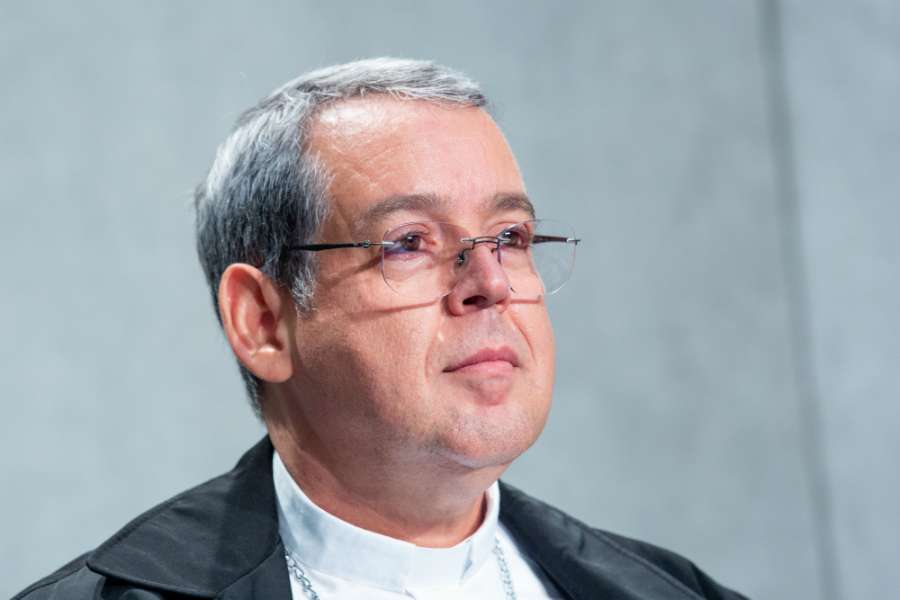A bishop in Brazil who is a member of the Amazon synod said Wednesday he believes a major obstacle to increasing priestly vocations in the region is a lack of personal holiness among the ordained, rather than the discipline of celibacy.
Bishop Wellington de Queiroz Vieira of Cristalandia said Oct. 16 that the proposal to combat priest shortages in the Amazon region by ordaining mature, married men – called viri probati – to the priesthood does not address a greater problem.
Noting that he does not speak for all synod fathers, but that he knows many of them share his views, de Queiroz said the real obstacles to increasing local priestly vocations are scandals and a lack of holiness in bishops, priests, and deacons.
Bishop de Queiroz, 51, spoke at a press conference on the Amazon synod, which is taking place at the Vatican Oct. 6-27, and is addressing the Church’s ministry in the region. His Diocese of Cristalandia was elevated from a territorial prelature in July; it is located in Tocantins state, which includes both part of the Amazon rainforest and the Cerrado savanna.
The bishop said clergy need to be close to their people as Pope Francis says: “But very often we do that, but do not convey the perfume of Christ. And we are not able to convey the real message.”
Instead, clerics often drive people away from Christ, he said, or very easily are “proclaimers of ourselves.”
“We are not always holy priests and holy bishops in our own Churches,” he said, adding that before talking about changing as a Church, people should think about changing themselves.
Bishop de Queiroz said the instrument to reawaken vocations lies in the holiness of the evangelizers. “I am convinced that if I live a holy life, I will not lack ordained ministers,” he said, because young people are looking for models of holiness and will be drawn to it when they see it.
“We have an obligation to provide examples of holiness.”
He described holiness as including simplicity of life, openness to dialogue, respecting differences, unwavering proclamation of the Christian life, compassion for those who suffer, charity, and accepting challenges.
The bishop said he thinks there should be consideration of another solution to priest shortages in the Amazon, which is an unequal distribution of priests. He said in some areas there is a higher concentration of priests than in others, but they lack a “missionary spirit” to leave and travel to the more remote and challenging areas of the Amazon. “We need to change this mentality,” he said.

